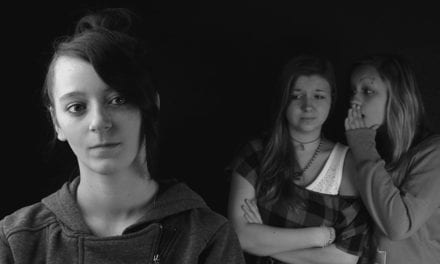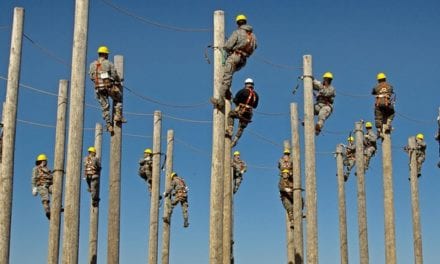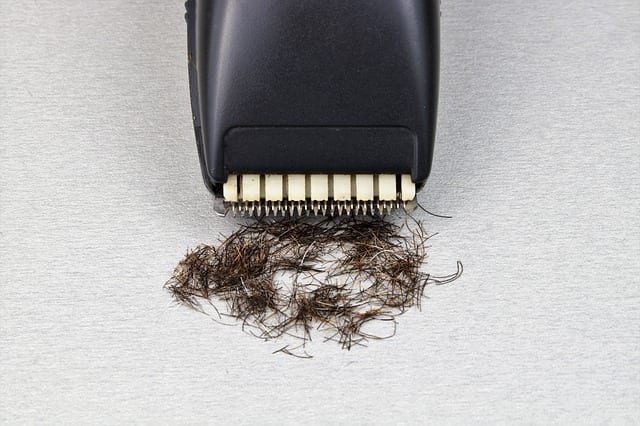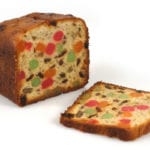Pieces of Moves
Another long pause.
The man—let’s call him Theodore Castle—folds the newspaper and throws it in the trashcan. The woman—let’s call her Jocelyn Castle—finishes the coffee and lifts the newspaper from the trashcan.
“Leave it,” he says, making a fist.
“I will not let him rot among waste,” she says, blocking her face with a forearm.
Like two pawns at the end of a long chess match, they stumble around each other in the kitchen. Neither stand victorious, watching from the kitchen window as the night wind stabs at itself with chilling darkness. Walking from the bathroom, Reverend Olinbrow says goodnight, and embraces Jocelyn, but not Theodore, a man not known for hugs, nor religiosity, nor compliments. “Thank you, Reverend,” she whispers, opening the front door. Standing on the porch, they wave goodbye to Reverend Olinbrow, dropping their hands once the lights of the Sedan vanish and the driveway dirt settles into the rust-colored yard. “I don’t want him coming out here anymore,” Jocelyn says. “Fine with me,” Theodore says. “All he does is stink up the bathroom and tell us how much God hates hate.”
Another long pause.
They sit at the table and pick at their skin. What a long, brittle autumn day. Especially cold for Timothy, their son, who was murdered and branded in the barn (less than fifty feet from the house) by school peers, teenagers, twin boys with shaved heads who call themselves The Hades Heisters.
The man—let’s call him Theo for short—turns off the hallway lights. The woman—let’s call her Josie for short—turns on the living room lights.
“Hades Heisters,” he whispers, taking a seat at the kitchen table. “Did no one see that name as a problem?”
“I thought I knew Timothy,” she says, sitting down. “But maybe I was blind.”
“We weren’t blind. We were right here.”
She covers her eyes with her hands, trying to block the image of her son’s shaved scalp, HH carved by knifepoint into his forehead. “What was he doing with them in the barn?”
Another long pause.
Theo—let’s call him a large appliance handyman—rubs his own eyes and yawns. Josie—let’s call her a vegetable gardener—smooths the newspaper and sobs. Tears fall on the table and meander to the center—the table had always leaned inward. Theo had planned to fix or replace it, but he never got around to doing it. Jocelyn used to hate the table, especially how it leaned inward. But not so much anymore.
“We should eat something.” She announces while standing.
“Nothing for me.”
“We could take a walk.” She leans against the kitchen sink. “Go out and try to see things more clearly.”
“Things seem pretty clear to me.”
“Maybe we could have somebody else over.”
“Nobody but priest-man wants to come out here and watch you cry.”
She looks directly into his eyes. “Well one of us has to.”
“It’s because he was soft,” he says. “It’s because I didn’t teach him how to be tough.”
Another long pause.
A large appliance handyman—let’s call him a high school dropout—pounds both fists against the table. It snaps and collapses, creating a v-shaped implosion. A large sliver of wood knifes itself between his toes while an even larger piece of wood scrapes his knee. “Why does everything we touch fall apart?” he says. “How did we get like this?
Another long pause.
A vegetable gardener—let’s call her a high school dropout—rearranges the cans of vegetables in the pantry, by color—red to green, the way Timothy liked it. “Maybe it’s time for a new table,” she says. Timothy had told her to make his father buy a new one. “You deserve a proper table from a proper store,” he had said, when he was eleven. Twelve. Thirteen. Fourteen. Fifteen. Sixteen. She sighs. Seventeen.
“What if I had a secret?” she asks Theo. “Something I bought that you know nothing about?”
“I’d ask where you got the money.”
“What if I told you it was a new table?”
“I’d tell you to go get your money back. I can fix this one. Better yet, I can make a sturdier, stronger, nicer one. I promise.”
“What if I told you I bought an apartment in town and that I was moving in alone?”
He doesn’t respond, staring instead at the palms of his hands, at the many lines leading to tremors he doesn’t know how to stop. He’d never looked at his son’s hands. Nor at his wife’s. Never held them, kept them warm, allowed flesh to merge with flesh until there was no differentiation. It seemed like a silly notion, a nonsensical duty, something women and weak men do—touchy-feely stuff that was not in his nature. But could it have been, had he chosen it? Maybe if he’d been softer to his son, and wife, his son would have been stronger, so strong that the Hades Heisters would have left him alone. He’d heard about reverse psychology from the television and from the newspaper—the opposite of what is suggested. But does it even work, for people like him, his wife, and his son? “You don’t deserve us,” Timothy had yelled at him almost every day. “I’m done with you,” he’d say. “D.O.N.E.” Theo looks at his wife. “If you want to be done, I understand.”
The high school dropout—let’s call her a woman marinating in self-determination—takes to her knees and lifts from beneath the sink a gray shoebox. She fingers a pair of pink latex gloves and removes the lid. “Wanna take a peek?”
“You don’t wear tennis shoes.”
“It’s not that kind of run.”
“I’m gonna go start on making a new table.” He stands, moving the broken remnants of the table to the corner of the room, peripherally glancing at the contents in the shoebox. “You want a table long enough for four chairs.” He pauses. “Or just two?”
She lifts from the shoebox an electric shaver. “How far are you willing to go for our son?”
“I’m not shaving my head, nor am I shaving yours.”
“It’s what he’d want, what he’d like.”
Theo couldn’t remember how Timothy wore his hair, shaved or otherwise. He’d never thought to look, or even ask. But now, confronted with the realization that he didn’t know whether Timothy had shaved his own head—or if the Hades Heisters had shaved it—Theo found himself lost, awash in feeling of loss, and deeply disgusted by his own capacity to overlook his son’s head, and hair, the same way his own father had overlooked Theo, offering only cold, and hot, apathy.
“Okay. I’ll do it.”
Raindrops pounded the rooftop shingles and vinyl siding of the little house. Neither knew a downpour was coming, despite reading (though not really) the local weather report in the newspaper. Neither used an umbrella. Neither wore a wedding band. Neither touched the other’s hair, head, face, jawline, . . . ever. Ladies first. Odd finger-combing through her hair, long strands tickling the spaces between his fingers, clumps of gray and black falling onto the floor. Her head was a perfect circle, one he’d wanted, more than once, to crush. More than once he’d thumped, pushed, and pulled. All he wanted now, staring at the prickly pate, was to kiss it, round and around, run a hand against the skin on her neck, thumb a line down her spine. Half of Timothy’s spine. He held back tears, letting the rain speak what he couldn’t say. “Guess it’s my turn,” he says, handing her the shaver.
“I wish we wouldn’t have buried him in all-black clothing,” she says, setting the shaver in the middle of Theo’s forehead, moving quickly up and back, side to side—so much hair, growing like porcupine quills for twenty-three years. His face, bloated with leather bumps, a kind of braille she’d never been able to read or understand. His skull was a perfect egg topped with more grey than she imagined, one she’d wanted, more than once, to hold. More than once she’d begged, cursed, and cried over her empty hands. All she wanted now, staring at the prickly pate, was to finish and to be finished. “Looks good on you. You should wear it this way from now on.”
“Do you want me to sweep it up?”
“Do you know where the broom is?”
He nods. “Does it feel weird having no hair?”
“No.” She holds the shoebox. “It feels like freedom.”
“What else is in the shoebox?”
She lifts a rectangular piece of red felt, revealing a fixed-blade knife and a Smith and Wesson revolver with a pink handle. “Does this surprise you?”
The high school dropout—let’s call him flabbergasted beyond verbalization—steps back and looks at his wife in a most unaccustomed manner, as if seeing her for the first time, maybe ever: popcorn textured skin, lazy right eye, pointed ears, and a dozen or so other odd features he’d poked at until they became scars. If only he was the type of man built with an apologetic nature—but he wasn’t, so he didn’t apologize—not ever. “What kind of gun is it?”
“It’s a 442 Moon Clip.”
“Why do you keep it beneath the sink?”
“Because I knew you’d never look there and find it.”
“Why do you have it?”
“For protection?”
“From who?”
“Who do you think?”
Another long pause.
“When did you get it?”
“I chickened out the first time,” she says. “I just couldn’t make myself hold it.”
“Where’d you buy it?”
“In the nastiest pawn shop I’ve ever been in.”
“Who drove you?”
“Timothy.”
“Whose car did you use?”
“His friend, Sam’s.”
“The kid you told Timothy not to like or trust?”
“I don’t like him. Or trust him. But he had something I needed, so I pretended that I did.”
“Did Sam and Timothy know where you were going?”
“They’re the ones who convinced me to do it.”
“So, this Sam kid knows you have a gun?”
Another long pause.
“Was it hard getting the permit?”
“The clerk said it’ll leave a golf-ball size wound.”
“Did the store ask for ID?”
“I shot five blanks at a mounted deer head hanging in the back.”
“How much did it cost?”
“The cashier called it a sweet piece.”
“Where did you get the money?”
“I didn’t shake one bit while I was shooting. I just marked the target and pulled the trigger, just like he told me to do. I couldn’t believe it was me doing it.”
“How long have you had it?”
“One finally has to surrender to what one can’t sustain.”
“Doesn’t your God take issue with killing?”
“He’s no longer my God.”
Another long pause.
“Did you buy any bullets?”
“I want to do this, but I want to do it my way.” She sets the shoebox in the sink. “And I want us to do it together, the Shaved Shysters, the SS, if you will.”
“No one in town will feel sorry for you anymore,” he says. “Not your church lady friends or Reverend Olinbrow or anyone.”
“Everyone has always underestimated my capabilities.”
They turn, as if being pulled by invisible stings, and stare at the empty 8×10 photo frame hanging crookedly on the wall, still awaiting Timothy’s senior picture, already two months late.
Theo and Josie—let’s call them united, resolute even—take turns pointing the gun and carving SS into the kitchen countertop.
“Do you really think this is what Timothy would want us to do?”
“I think Timothy was embarrassed by you,” she says, flinging the knife at a picture of The Virgin Mary hanging on the opposite wall, its tip lodging dead center into the middle of Mary’s forehead. “And broken for me.”
Another long pause.






















